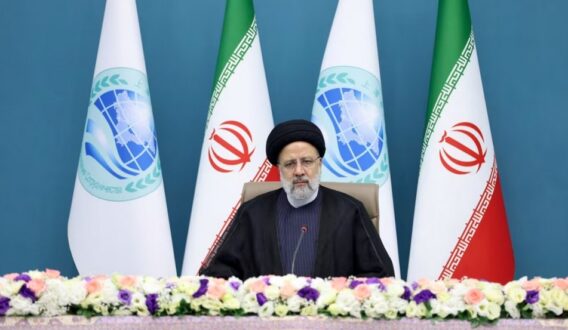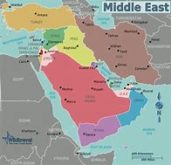VOA – Iranian President Ebrahim Raisi arrived in neighboring Pakistan Monday for official meetings with the host nation’s leaders amid Iran-Israel tensions.
An official pre-arrival announcement from Islamabad’s foreign ministry stated that the talks will provide an “important opportunity” to strengthen bilateral ties and cooperation in trade, connectivity, energy, and agriculture.
It said Raisi’s high-level delegation would include the Iranian foreign minister, other Cabinet members, and business representatives.
During his three-day stay in Pakistan, the Iranian president is scheduled to meet his counterpart, Asif Ali Zardari, and Prime Minister Shehbaz Sharif, among others.
The Pakistani statement said without elaborating, “They will also discuss regional and global developments and bilateral cooperation to combat the common threat of terrorism.”
Iran and Pakistan share a 900-kilometer border, which is prone to militant infiltration, smuggling, and other illegal crossings. The countries accuse each other of not preventing militant groups from sheltering on their respective lands and launching cross-border terrorist attacks.
In January, Iranian security forces launched missile strikes against what they said were anti-Iran militant hideouts in the southwestern Pakistani border province of Baluchistan. Islamabad condemned Iran’s violation of Pakistan’s territorial integrity and retaliated with strikes on bases of anti-Pakistan militants operating from Iranian soil.
The unprecedented exchange of so-called counterterrorism strikes raised concerns about a larger conflict between the two Muslim countries and of wider regional instability after Iran-backed Palestinian militant group Hamas carried out an Oct. 7 terror attack on Israel.
Tehran and Islamabad urgently undertook diplomatic efforts to defuse bilateral tensions, renewing pledges to enhance counterterrorism cooperation and respect each other’s sovereignty and territorial integrity.
Raisi’s visit is part of those mutual efforts to mend relations between Iran and Pakistan.
Gas pipeline
Analysts said this week’s meetings in Islamabad are also expected to focus on financial and legal issues related to constructing a gas pipeline between Iran and Pakistan. The two countries signed an agreement in June 2009 for the proposed pipeline to export Iranian natural gas to Pakistan.
While Tehran has since claimed to have completed construction of 1,100 kilometers of the pipeline on its side of the border, construction has not started on the Pakistani side because Islamabad fears it would invite U.S. sanctions for importing Iranian gas.
Iran’s energy sector is under sanctions from Washington for its nuclear program.
Iranian officials have repeatedly threatened to sue Pakistan in international arbitration and impose a penalty of around $18 billion for breach of contract.
The U.S. State Department has recently renewed its warning to Islamabad, advising against proceeding with the project to avoid sanctions.
Iran’s recent direct attack on Israel, with more than 300 drones and missiles, has made it even more difficult for Pakistan to build the pipeline, said Michael Kugelman, director of the South Asia Institute at Washington’s Wilson Center.
On social media platform X, Kugelman wrote, “Any possibility of the U.S. giving Pakistan a sanctions waiver for the gas pipeline it claims it plans to build with Iran is essentially nonexistent. And that possibility was practically nil even before the Iranian attack on Israel.”
The Iranian strikes were in response to Israel’s apparent destruction on April 1 of an Iranian consular building in Syria in which seven members of Iran’s elite Revolutionary Guards, including two generals, were killed.
“The visit was planned weeks before the current hostilities, and Pakistani officials likely had no estimates that the visit would coincide with a full-blown regional crisis involving Iran,” said Ahmed Quraishi, a Pakistani expert on Middle Eastern affairs.
“Coming on the heels of Israel-Iran tensions, the Iranian government is likely to use this visit to suggest regional support for Iran’s position,” Quraishi said.
 Shabtabnews In this dark night, I have lost my way – Arise from a corner, oh you the star of guidance.
Shabtabnews In this dark night, I have lost my way – Arise from a corner, oh you the star of guidance.



